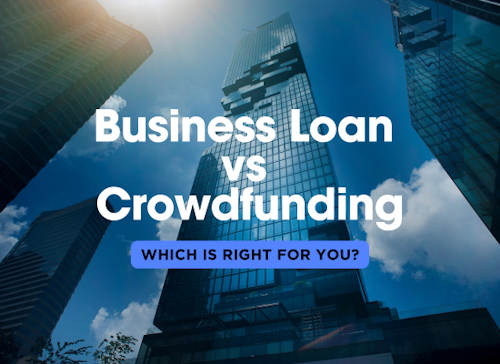Securing funds for a new business venture can be one of the most daunting challenges for entrepreneurs. Two popular methods to obtain the necessary capital are business loans and crowdfunding. Both have their unique advantages and potential pitfalls, and understanding the differences between them can help you make an informed decision that best suits your business needs.
Business loans are a traditional financing option where entrepreneurs borrow money from banks or financial institutions with the promise of paying it back with interest. On the other hand, crowdfunding is a more modern approach, leveraging the power of the internet to raise small amounts of money from a large number of people. Each method comes with its own set of requirements, timelines, and implications, which can significantly impact your business’s future.
| Incbook: Comparing Business Loans to Crowdfunding | ||
|---|---|---|
| Criteria | Business Loans | Crowdfunding |
| Source of Funds | Banks, credit unions, financial institutions | Individuals, supporters, backers via online platforms |
| Application Process | Requires detailed business plan, credit check, collateral | Create a campaign, market your idea, set funding goals |
| Approval Time | Weeks to months | Varies, can be quick if campaign is successful |
| Repayment Terms | Fixed monthly payments with interest | No repayment required, but rewards or equity may be offered |
| Risk | Personal and business assets may be at risk if loan is not repaid | Primarily reputational risk if campaign fails |
| Costs | Interest rates, application fees, closing costs | Platform fees, cost of rewards or equity given to backers |
| Control | Full control over business operations | Potential loss of some control if equity is offered |
| Funding Amount | Typically larger amounts available | Can be smaller, depending on the number of backers |
| Community Engagement | Limited to lenders and financial institutions | High, involves engaging with potential customers and supporters |
| Flexibility | Less flexible, strict terms and conditions | More flexible, depends on campaign structure |
Choosing between a business loan and crowdfunding ultimately depends on your specific business needs, goals, and circumstances. Business loans offer the stability and predictability of structured repayments, often providing larger sums of money, but they come with stringent requirements and the risk of debt. Crowdfunding, on the other hand, allows you to engage directly with your community and gather support in a more flexible manner, though it may result in smaller funding amounts and requires significant effort in campaign management.
By carefully evaluating the pros and cons of each funding option, you can determine which path aligns best with your business vision and strategy. Whether you opt for the traditional route of a business loan or the modern approach of crowdfunding, the key is to plan meticulously and execute your chosen method with confidence and dedication. Your business’s success depends not just on the funds you raise, but on how you leverage those funds to grow and thrive in the competitive marketplace.
Reference Links
U.S. Small Business Administration (SBA)
- Description: The SBA offers extensive resources and guidance on various types of business loans, including eligibility criteria, application processes, and tips for securing funding.
- URL: https://www.sba.gov/funding-programs/loans
Federal Trade Commission (FTC) – Crowdfunding
- Description: The FTC provides essential information on crowdfunding, including how it works, potential risks, and legal considerations for both backers and project creators.
- URL: https://www.consumer.ftc.gov/articles/what-you-need-know-about-crowdfunding
Internal Revenue Service (IRS) – Crowdfunding Income
- Description: The IRS outlines the tax implications of funds raised through crowdfunding, helping entrepreneurs understand their obligations and how to report the income correctly.
- URL: https://www.irs.gov/businesses/understanding-crowdfunding-and-taxable-income



